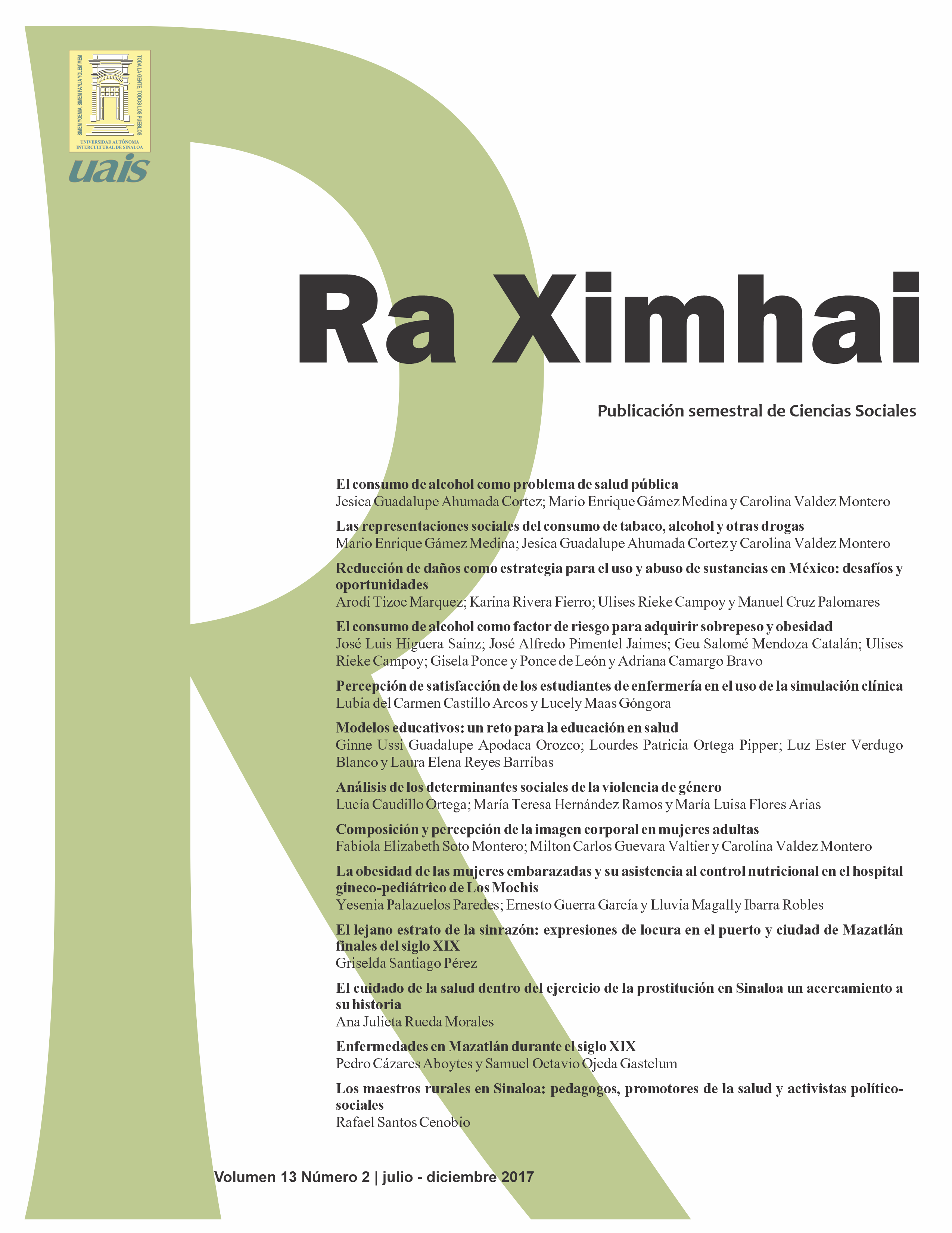Los maestros rurales en Sinaloa: pedagogos, promotores de la salud y activistas político-sociales
DOI:
https://doi.org/10.35197/rx.13.02.2017.13.rsPalabras clave:
posrevolución, docencia, discursos, estado- naciónResumen
Este artículo tiene como objetivo estudiar la formación del Estado de Mexicano postrevolucionario a partir de las acciones emprendidas por los maestros rurales pertenecientes a la Secretaria de Educación Pública (SEP). Desde estos actores se programó y emprendió una Revolución cultural a nivel nacional, lo cual establecía como misión integrar e incorporar a las masas de campesinos y obreros a la cultura nacional. En ese sentido, los maestros funcionaron como articuladores entre las comunidades y el Estado nacional se convirtieron en pedagogos, organizadores de campesinos y obreros; promotores de la unidad y legitimidad mediante canciones, danzas, teatro y oratoria, introduciendo los nuevos héroes y principios de la Revolución a los procesos políticos y a las expresiones artísticas locales (Kay, 1997, p.57).
El trabajo consta de dos apartados. En el primero alude a las acciones educativas emprendidas por el Estado como manifestaciones contra el alcoholismo, Día y la Semana del Árbol. Estos proyectos eran ejecutados por los gobernadores de los estados, presidentes municipales, maestros y estudiantes, quienes se encargaban de recorrer las calles gritando y perorando consignas contra el alcoholismo y los daños que éste ocasionaba.
El segundo apartado, se refiere al quehacer de los maestros, sobre todo en sus respectivas comunidades donde organizaban campañas de limpieza, encuentros deportivos, plantación de árboles y formación de comités de Padres de Familia para recaudar fondos para la construcción de escuelas. Al mismo tiempo, se analiza a los maestros como articuladores entre el Estado nacional y las comunidades rurales. Para concretar el proyecto socialista, los profesores organizaron obras de teatro, fundaron escuelas nocturnas, presidieron reuniones y dictaron conferencias a los ciudadanos de la comunidad. Asimismo, los profesores se convirtieron en líderes populares, pues asesoraron y fundaron sindicatos obreros; además, crearon Comités Agrarios, de los cuales ellos mismos se erigieron como dirigentes.
Descargas
Citas
Cuevas, Lourdes María. (2011). La Educación Socialista en Sinaloa, 1934-1940, Culiacán: Universidad de Occidente.
Escalante Fernández, Carlos. (2010). “Inspectores y maestros rurales ante la educación de los indígenas en el estado de México de las décadas de 1920 y 1930”, Cuadernos Culturales 8, no. 14.
Figueroa, José María y Gilberto López Alan (Coords). (2003). Choix. Encuentros con la Historia, tomo I., Culiacán: Gobierno del Estado de Sinaloa, Revista Cultural Presagio y Archivo Histórico General del Estado de Sinaloa.
Mallon, Florencia E. (2003): Campesinos y Nación. La construcción de México y Perú poscoloniales, México: El Colegio de San Luís, El Colegio de Michoacán y El Centro de Investigaciones y estudios Superiores en Antropología Social.
Montes de Oca Navas, Elvia. (2007). “La educación en México. Los libros oficiales de lectura editados durante el gobierno de Lázaro Cárdenas, 1934-1940”, Perfiles Educativos 29, no. 117.
Vaughan, Mary Kay. (2000). La política cultural en la Revolución. Maestros, campesinos y escuelas en México, 1930-1940, México: Fondo de Cultura Económica.
Guillermo Palacios. (1999). La pluma y el arado. Los intelectuales pedagogos y construcción sociocultural de “problema campesino” en México, 1932-1934 (México: El Colegio de México y el Centro de Investigación y Docencia Económicas.
Quintanilla, Susana y Mary Kay Vaughan. (1997). Escuela y sociedad en el periodo cardenista, México: Fondo de Cultura Económica.
Félix Brito Rodríguez. (2011). “Alcohol, política, corrupción y prostitución en el Sinaloa pos revolucionario”, en Historias de la Revolución en Sinaloa, Samuel Octavio Ojeda Gastelum y MatíasHiram Lazcano (Culiacán: Universidad Autónoma de Sinaloa).
Vázquez de Knauth, Josefina Z. (1969). “La educación socialista de los años treinta”, Historia Mexicana 23, no. 71
Descargas
Publicado
Cómo citar
Número
Sección
Licencia
Derechos de autor 2017 Rafael Santos Cenobio

Esta obra está bajo una licencia internacional Creative Commons Atribución-NoComercial 4.0.
Usted es libre de:
- Compartir — copiar y redistribuir el material en cualquier medio o formato
- Adaptar — remezclar, transformar y construir a partir del material
- La licenciante no puede revocar estas libertades en tanto usted siga los términos de la licencia
Bajo los siguientes términos:
- Atribución — Usted debe dar crédito de manera adecuada , brindar un enlace a la licencia, e indicar si se han realizado cambios . Puede hacerlo en cualquier forma razonable, pero no de forma tal que sugiera que usted o su uso tienen el apoyo de la licenciante.
- NoComercial — Usted no puede hacer uso del material con propósitos comerciales .
- No hay restricciones adicionales — No puede aplicar términos legales ni medidas tecnológicas que restrinjan legalmente a otras a hacer cualquier uso permitido por la licencia.








